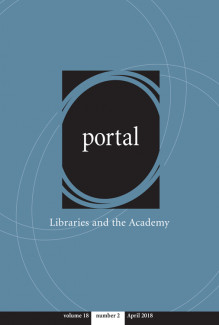
Johns Hopkins UniversityEst. 1876
America’s First Research University
Thesis Research Aims to Deepen Student Connections

A pair of Haverford College librarians recently published "False Starts and Breakthroughs:Senior Thesis Research as a Critical Learning Process" in the journal portal:Libraries and the Academy. Haverford students have to complete a senior thesis or work featuring comparable research. Margaret Schaus and Terry Snyder researched students in two majors to determine how future students could better use the research options available to them. The pair joined us for a Q&A on the study.
What value do you see in senior theses written by students at your college?

How important are smaller scale research projects like yours to impact specific populations?
We chose two groups of students, Anthropology and History seniors, who were deeply engaged in research in order to see what was working well and what was impeding their progress. This strategic choice allowed us to analyze student experiences and resulting theses to find larger patterns in their practices ranging from discovery to synthesis and explanation. As a result, librarians are alert to needed next steps and potential stumbling blocks students may encounter.
What was the most interesting thing that you learned throughout this project?
We discovered that the most challenging intellectual hurdles for students often involved issues at the heart of their academic disciplines. Some history students had difficulties reading their primary sources with the same critical eye they applied to secondary scholarship. The value accorded primary sources prompted students to take them at face value. In the case of anthropology students, they needed to analyze questions raised during their fieldwork by applying pertinent theoretical frameworks. Often their understanding could be enhanced by bringing different theoretical discourses into dialog.
How can this project be used to help at other institutions?
Instruction librarians will find student descriptions of the research process, problems identified by faculty and librarians, as well as thesis writers themselves, and changes librarians have made in class and in individual tutorials. This multi-year study has deepened our understanding of the foundations needed for independent research. We have developed rubrics across the four years for students in each department.
How important is the support of a journal like Portal to share your research?
We have benefited greatly from work done in recent years, particularly concerning the ways students think about research and how different academic disciplines define knowledge. Journals continue to be an important means of communicating with colleagues as well as with the general reader. portal's focus on academic libraries fosters rich exchanges on important topics; we are grateful to have such a valuable and trusted source available to us in an information-saturated society.
Do you plan on re-visiting this project in any way in the near future?
We expect to work further on this topic in the near future and are still developing our plans to do so.


